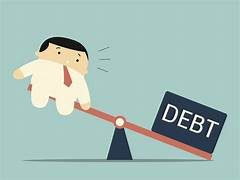Debt Review vs. Debt Consolidation: Which is Right for You?
Struggling with debt and unsure which solution is best for you? Debt review and debt consolidation are two popular debt relief options in South Africa, but they work very differently. In this guide, we’ll break down the key differences, pros and cons, and how to choose the right option for your financial situation.
What is a Debt Review?
Debt review, also known as debt counselling, is a legally regulated process under the National Credit Act (NCA). It’s designed to help over-indebted South Africans by restructuring their debt repayments into affordable monthly installments.
How Debt Review Works
-
Application: You apply through a registered debt counsellor.
-
Assessment: Your financial situation is evaluated, including income, expenses, and debts.
-
Restructuring: A new repayment plan is created, reducing your monthly payments.
-
Court Approval: The plan is submitted to a magistrate’s court for approval.
-
Repayment: You make a single monthly payment to the debt counsellor, who distributes it to your creditors.
-
Clearance: Once all debts are paid, you receive a clearance certificate.
Pros of Debt Review
-
Affordable monthly repayments.
-
Legal protection from creditors.
-
Asset protection (e.g., your home or car).
-
Structured plan to become debt-free.
- Sustainable route to getting out of debt (you don't take on a loan (more debt) to get out of debt.
Cons of Debt Review
-
Long-term commitment (3–5 years).
-
You temporarily won't have access to new credit.
(This is only temporary, and if you're struggling to pay your debt each month, this is the best route to take to stop taking on further debt)
What is Debt Consolidation?
Debt consolidation involves combining multiple debts into a single loan with a lower interest rate. This simplifies repayments and can reduce the overall cost of your debt.
How Debt Consolidation Works
-
Apply for a Consolidation Loan: Use the loan to pay off existing debts.
-
Single Monthly Payment: Repay the consolidation loan instead of multiple creditors.
-
Lower Interest Rate: Save money with a reduced interest rate.
Pros of Debt Consolidation
-
Simplifies repayments into one monthly instalment.
-
Potentially lower interest rates.
-
Can improve your credit score if managed well.
Cons of Debt Consolidation
-
Requires a good credit score to qualify.
-
Risk of losing collateral if the loan is secured.
-
May lead to more debt if spending habits don’t change.
Who Should Consider Debt Consolidation?
Debt consolidation is best for individuals who:
-
-
Have a good credit score.
-
Can secure a loan with better terms than their current debts.
-
Are disciplined enough to avoid taking on new debt.
Is debt consolidation better than debt review?
Choosing between debt review and debt consolidation depends on your financial situation, goals, and discipline. Here’s a quick recap
-
-
Choose Debt Review if:
-
You’re over-indebted and need legal protection.
-
You’re struggling to make minimum payments.
-
You’re willing to commit to a long-term repayment plan.
-
-
Choose Debt Consolidation if:
-
You have a good credit score and can qualify for a loan.
-
You want to simplify repayments and reduce interest rates.
-
You’re confident in your ability to avoid new debt.
-
Both debt review and debt consolidation offer viable paths to financial freedom, but they cater to different needs. If you’re unsure which option is best for you, consider consulting a financial advisor or debt counsellor. Taking the first step towards resolving your debt is crucial, and with the right strategy, you can regain control of your finances and build a brighter financial future.
By understanding the differences between debt review and debt consolidation, you can make an informed decision that aligns with your financial goals. Remember, the sooner you act, the sooner you can achieve peace of mind and financial stability.


